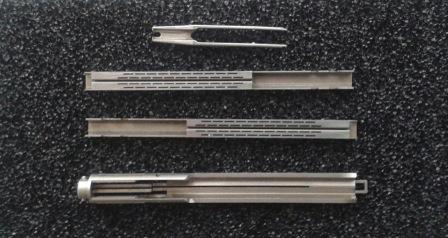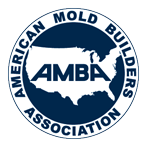By: Paul Ziegenhorn
August 26, 2010

At Matrix Tooling & Matrix Plastic Products, we design and build injection molds for a wide variety of advanced materials and processes, including metal injection molding (MIM.) While it is possible to build a very accurate injection mold, getting the actual molded part to meet the print specifications often requires more.
Resins with predictable shrinkage rates allow you to confidently machine details to a specific size without having to invest additional time "sneaking up" on them after processing. However, when working with MIM tools, not only are the shrinkage rates significantly higher (often representing a large percentage of the part size) but they are also less predictable. Subjecting the molded MIM pieces to the next required stage of heat treating further complicates things. Re-compounding the feedstock to adjust the "green" part is a common method used to achieve the required shrinkage and physical properties. But because each round of sampling entails the secondary processes of debinding and sintering, qualifying a MIM part can be time consuming.
While our industry's conscious efforts to reduce lead times have benefited the development of medical devices, certain parts are proving more difficult to qualify quickly. MIM parts seem to be among them. In order to address this challenge, Matrix has worked with our customers to develop "breadboard" parts: small quantities of machined finished parts, made to the database using conventional machining technologies, and made from the same raw material. This approach has numerous benefits. Since the initial test launch of a device may require as few as 3-6 units, machining breadboard parts is a more timely way to sample components that are destined to be produced using MIM. Any problems that crop up during the testing of the breadboard prototypes can be remedied prior to cutting any steel in the MIM tool, saving both time and money. Being able to prove out the concept more quickly and inexpensively with breadboard parts results in a faster release of MIM tooling for production and a smoother debugging and qualification process.
_horizontal_white_536x129.png)

